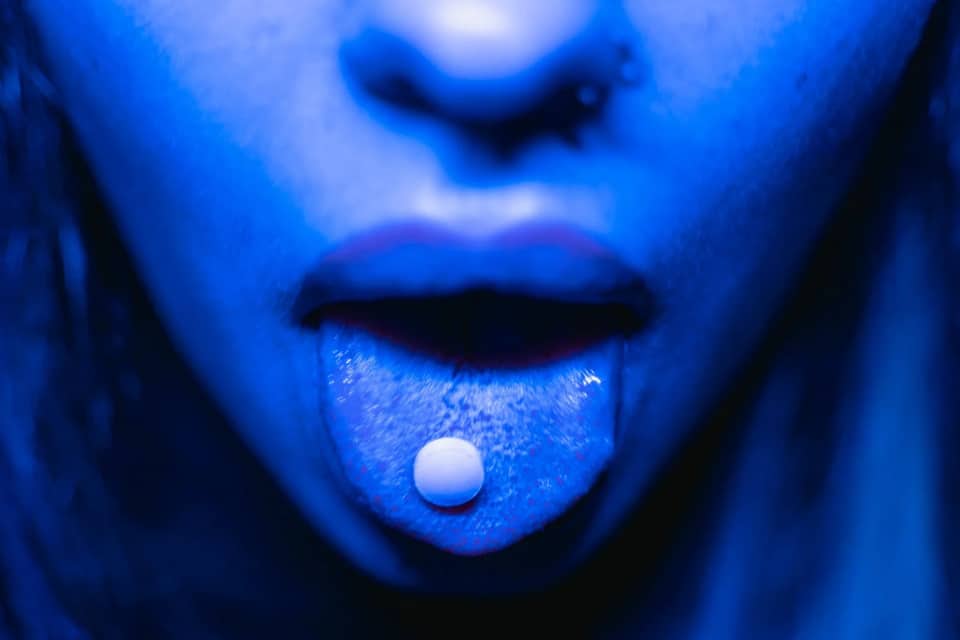In our fourth conversation with neuroscientist , author, and internationally renowwned drug expert Dr. Carl Hart, we talk about the nuances of language, what’s missing from “harm reduction”, and what a society-wide drug legalization process might look like.
Thanks again for speaking with us Dr. Hart. In our last conversation about the Opiate Crisis, you touched on a set of practices that we often call “harm reduction.” This was another sacred cow that you talked about in your book, and you critiques were really on point. How does this concept of harm reduction carry embedded within it a deep stereotype?
The actual practice of harm reduction is a great thing. The thing that I was pointing out was our language. When we pair the term “harm reduction” with drugs, we have the term “harm” being paired with “drugs” constantly, over and over. What that does is it shapes our thinking about drugs. It shapes our behavior about drugs, and our feelings about drugs.
I asked the reader to think about what we do when we do drugs – harm is like one of the most remote things. This is about being healthy, happy, pleasurable, all these positive attributes, so why are we pairing “harm” constantly with it over and over when this activity has little to do with harm? I want people to understand, it’s the term, not the practice, but of course some people don’t get it. They think it’s a criticism of the practice.
I was talking to my wife about this, she told a joke about it that completely made me understand what was happening, because I was puzzled. She said it was like there was this person that people called Ugly Mary, and me saying that Mary is not ugly. So I come along and start saying “Hey, stop calling her ugly!” and then the people turn around and say, “Why don’t you like Ugly Mary?” That’s exactly what’s going on.
Mary has many redeeming qualities, why are you calling her ugly constantly?
Exactly. That’s the point. People think I don’t like Ugly Mary because I keep saying don’t call Mary ugly.
That makes sense. Hopefully anyone who comes across this interview will not make that same mistake. What you are saying is that harm reduction practices are important, but it’s one half or perhaps less of the picture, because substances have so much to offer in terms of joy, fulfillment, therapeutics, fun…
Yes if you’re having to explain to people that substances have a lot to offer, you’re talking to some really dumb people, and you might not want to be in that conversation. My point is that our language shapes what we think and how we behave. So stop constantly pairing harm with drugs. We don’t call it harm reduction when we brush our teeth in the morning, or when we put our seatbelts on. So I’m saying to people, this pairing of these associations of language are powerful. Be careful. The notion that we have to tell people that drugs have all these positive effects, we’re really talking to some idiots if they don’t get that. It’s like if you are a college professor in mathematics and your students come to class and you have to teach them addition, subtraction and division, you’ve already lost. I’m sorry this is not the class for you, you gotta go back to elementary school, this is not what we do here.
If we were serious about reducing the harms associated with drug use, clearly the most impactful step we could take is to legalize and regulate them. Let’s say the world wakes up to this realization tomorrow, and they say “Dr. Hart, you’re completely right. Let’s legalize all drugs.” What’s the best way to do that?
You know, I have some ideas about that, but this is one of the ways that people shut down the conversation about changing what we do, by requiring me or some other person to have all the answers for everything.
I’m a neuropsychopharmacologist, I could tell you all about dosing, unit dose, route of administration, that’s my real expertise. And I have some ideas about how we can do this, but I don’t have the entire picture all on my own. They say “You don’t have all the answers?” Of course not. We’re smart people, we can assemble a team that can do this best for each individual aspect and each individual drug.
First off we’d have to determine the maximum unit dose that we want to sell for heroin vs cocaine vs MDMA vs marijuana, to increase the likelihood for safe, happy use and decrease the likelihood of any problems. That’s the criteria we use to determine these unit doses that we sell.
Then we have to think about the route of administration for the various drugs. We may, for example, all agree that we are not selling products that can be administered intravenously. Great, that’s fine. When you have high quality drugs, something like heroin, you don’t need to have intravenous administration, and the people that do that typically really know what they are doing, they are committed, and that’s ok. They can do their thing and they wouldn’t be punished for that, but we wouldn’t sell products for that. And we may decide that we won’t sell, let’s say, smoking products because we have some experience with tobacco and we want to make sure that we don’t sell smoking products. Ok again, if the quality is high enough, you can achieve the same effect without having to smoke certain drugs.
All of these drugs would also have age requirements, and we’d have to determine what that is. It’s a simple sort of thing for me: At what age can you be given a gun and told to die for the country? Oh 18? Ok then that’s the age requirement for all of these.
Should we have a competency requirement like we do with driving? Well we might. Let’s take the drugs case by case. We worry about overdoses and drug combinations for some of these drugs, and we might have a competency test for those, a 20 point multiple choice test like a driving exam, but with other drugs that might not be needed because it’s less of a concern.
So all of these kinda things are how you would go about doing this. Which drugs should we legalize? I’d say the drugs people most often seek. That would certainly be MDMA, psychedelics, cocaine, an opiate like heroin, something that is easily absorbed- but you don’t need to make every opioid legal like fentanyl when you have the one or two that achieve that goal. Some might say over time, hey these drugs that are available are not achieving the effect that I like to have. Ok, we’ll evaluate that, we’ll see if we should have that. Then as public taste and new interests develop, we’ll bring new ones online as the demand dictates, in the safest way possible.
You touched on competency exam, which reminds me of Rick Doblin’s idea of a psychedelic license.
I don’t mean a license persay, more like a stamp on your ID that says you’ve passed the exam to purchase this sort of drug. Something that we can incorporate when you get your driver’s exam, that doesn’t put too much burden on a person. Something that would not punish people with incarceration if they violate it. Because we don’t want to replicate the same system that we have now. And to do this right, the medical community will not be anywhere in charge of this, that means no cops, whether they are cops with stethoscopes, or cops with guns and badges.
Right, and the medical side of things could run in parallel with this right? Someone could get prescribed MDMA or opioids from their doctor, or go to a psychedelic clinic for psilocybin treatment for example, but this legalization aspect would be independent of all that.
Right, that’s fine, you’d have the medical system for people who are suffering and need help. That’s who the physicians should see. They should not be seeing people who are just trying to be adults.
We are very grateful to Dr. Hart for speaking with us. Check out our other conversations with Carl Hart on liberty, hiding our drug use, and the Opiate Crisis. His latest book Drug Use for Grown-Ups is available here.










